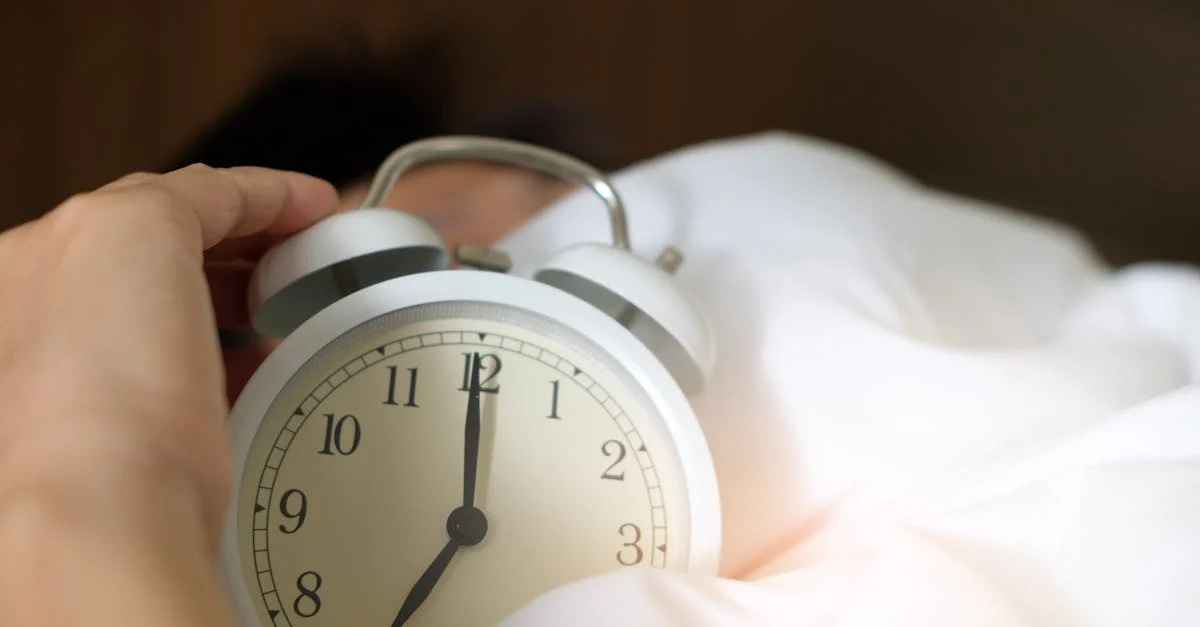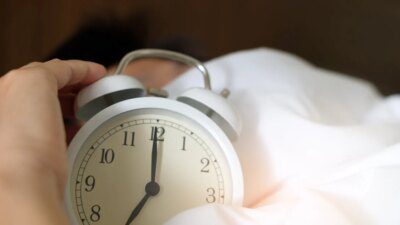In our fast-paced world, the importance of quality sleep often gets overshadowed by daily demands and responsibilities. However, unlocking the secrets of sleep can reveal transformative insights for those seeking optimal recovery. By incorporating effective sleep & recovery tips into our routines, we can significantly enhance not only our physical health but also our mental well-being. As we explore innovative techniques, it becomes clear that prioritizing sleep is essential for a fulfilling life.
Main Points
- Understanding the science behind sleep and its impact on recovery.
- Innovative techniques to improve sleep quality.
- The undeniable benefits of prioritizing recovery through restorative sleep.

The Science of Sleep: Understanding Its Crucial Role in Recovery
Understanding the science of sleep is essential for optimal Sleep & Recovery. Sleep not only prepares the body for the next day’s challenges, but it also significantly impacts mental clarity. Various techniques can enhance Sleep & Recovery techniques, ensuring you wake up refreshed. Prioritizing sleep offers numerous benefits for overall well-being, including:
- Improved cognitive function: Sleep enhances problem-solving skills and creativity.
- Physical restoration: Muscles repair and grow during deep sleep stages.
- Emotional balance: Quality sleep fosters emotional resilience and stability.
Incorporating healthy sleep habits can profoundly influence your Sleep & Recovery benefits, ultimately enriching your daily life.
Top 10 Sleep Hygiene Practices for Enhanced Rest and Repair
Prioritizing Sleep & Recovery is essential for optimal health. To enhance your sleep hygiene, consider these ten practices. First, maintain a consistent sleep schedule, even on weekends. Create a calming bedtime routine, as this prepares your mind. Limit exposure to screens before sleep, because blue light inhibits melatonin production. Moreover, ensure your sleep environment is dark, quiet, and cool for better rest quality. Avoid caffeine and heavy meals close to bedtime. Lastly, incorporate relaxation techniques to foster rejuvenation.
Key Practices Summary
| Practice | Description |
|---|---|
| Consistency | Stick to a regular sleep schedule. |
| Calm Routine | Engage in relaxing activities before bed. |
| Limit Screens | Reduce blue light exposure pre-sleep. |
How Sleep Cycles Impact Your Physical and Mental Health
The intricate relationship between Sleep and overall health cannot be overstated. Disturbances in sleep cycles can lead to an array of physical ailments as well as mental health challenges. For instance, disrupted Sleep often results in fatigue, affecting cognitive functions like memory and concentration. This, in turn, can create a cycle of stress and anxiety. It’s essential to recognize the importance of consistent sleep patterns to foster recovery and rejuvenate both body and mind, ultimately enhancing overall wellness.
Innovative Technologies and Gadgets for Monitoring Sleep Quality
In today’s fast-paced world, improving sleep quality has become paramount for many. Various innovative technologies and gadgets serve this purpose effectively. For instance, wearable devices track your sleep patterns, providing insights into cycles and duration. Additionally, smart mattresses adjust firmness based on your sleep position, enhancing comfort. Sleep apps, meanwhile, utilize soundscapes to promote relaxation.
- Sleep & Recovery: Essential for overall health, proper sleep aids recovery after daily stress.
- Sleep & Recovery: Devices can analyze not just sleep quality but also environmental factors like light and noise.
- Smart alarms: These rise gently, waking you during light sleep for a more refreshing start to the day.
Ultimately, embracing these advancements can transform your sleep experience, leading to improved sleep quality and greater daytime productivity.
Natural Sleep Aids: Herbal Remedies and Lifestyle Changes That Work
Many people struggle with sleep issues, leading them to seek natural solutions. Herbal remedies like chamomile and valerian root can promote relaxation and improve sleep quality. However, it’s essential to pair these with lifestyle changes, such as establishing a regular bedtime routine and reducing screen time before sleep. Additionally, practices like mindfulness and gentle exercise can significantly enhance your sleep environment. Exploring these approaches may lead to a more restful night, ultimately supporting your Sleep & Recovery journey.
Creating the Perfect Sleep Environment: Tips for Optimal Darkness and Noise Control
Establishing the ideal sleep environment is crucial for achieving deep, restorative rest. Effective darkness can greatly enhance your sleep quality. Consider using blackout curtains or eye masks to block intrusive light. Additionally, controlling noise is equally important; a white noise machine can mask disruptive sounds.
“The quality of your sleep significantly impacts your performance and recovery.”
Experiment with these elements to find what works best for you, ensuring a serene atmosphere conducive to Sleep & Recovery.
The Connection Between Nutrition and Sleep: Foods That Promote Restful Nights
The relationship between Sleep & Recovery and nutrition is pivotal for achieving restful nights. Certain foods can significantly enhance the quality of your sleep, while others may hinder it. Here are some key dietary choices that can aid your journey to a peaceful slumber:
- Almonds: These nuts are rich in magnesium, which has been shown to improve sleep quality.
- Chamomile tea: Known for its calming properties, this herbal infusion can help soothe the mind before bedtime.
- Turkey: Packed with tryptophan, turkey promotes the production of melatonin, the hormone responsible for regulating sleep cycles.
Incorporating these foods into your evening routine may lead to enhanced relaxation and an improved Sleep & Recovery process. However, remember that variety in your diet is essential. Alongside these options, maintaining responsiveness to your body’s needs is crucial for achieving that elusive restful night.
Conclusion
In conclusion, prioritizing your well-being can dramatically improve your overall health and productivity. Sleep & Recovery tips are essential not only for physical rejuvenation but also for mental clarity. Many overlook the profound impact quality rest has on daily life. Therefore, embracing good sleep habits can help ward off fatigue and enhance focus. By making small adjustments, such as establishing a bedtime routine or creating a restful environment, you can significantly transform your recovery process. This journey towards better sleep is not just about rest; it’s about enriching every moment of your waking hours. Embrace these changes, and you may find that the rewards extend far beyond your sleep.
Frequently Asked Questions
How much sleep do adults need each night?
Most adults need between 7 to 9 hours of sleep each night for optimal health and functioning.
What are some tips for improving sleep quality?
To improve sleep quality, establish a regular sleep schedule, create a relaxing bedtime routine, limit exposure to screens before bedtime, and ensure your sleep environment is dark, quiet, and cool.
Can diet affect my sleep?
Yes, certain foods can impact sleep. Consuming a balanced diet, avoiding heavy meals close to bedtime, and limiting caffeine and alcohol can help improve sleep.
What is the role of exercise in sleep and recovery?
Regular exercise can promote better sleep quality and duration. However, it’s best to avoid vigorous exercise close to bedtime as it may interfere with falling asleep.
What should I do if I can’t sleep?
If you can’t sleep, try getting out of bed and engaging in a quiet, non-stimulating activity until you feel tired. Avoid looking at screens and keep the lights dim.



